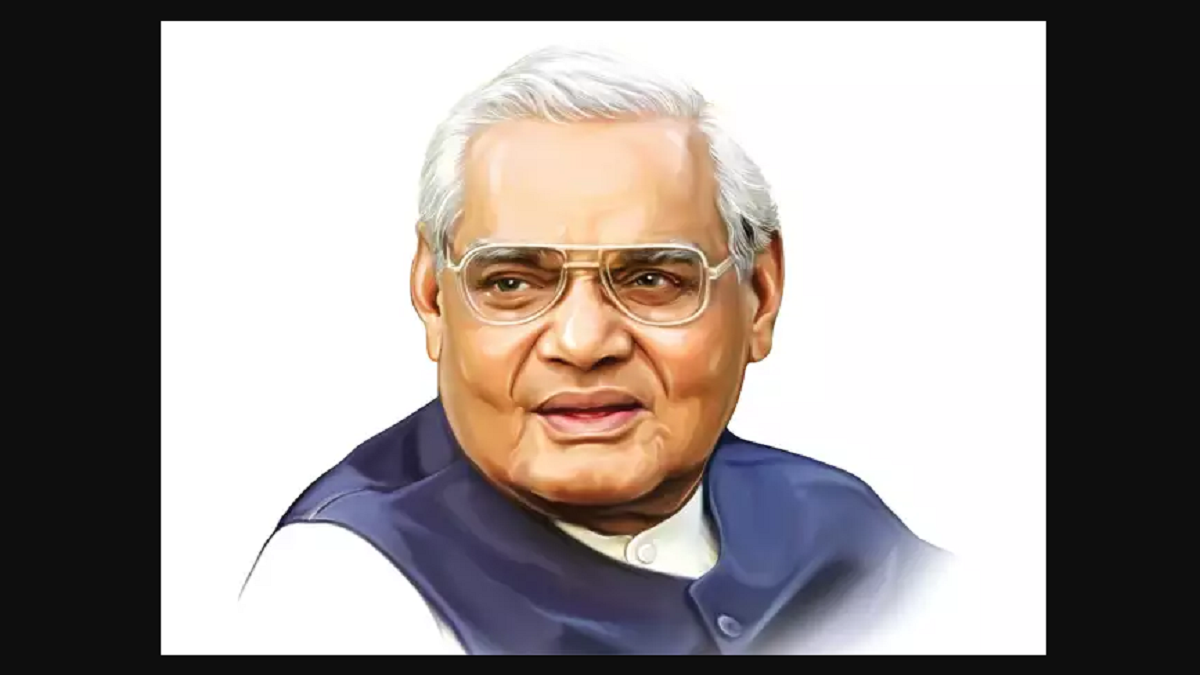Atal Bihari Vajpayee was the first Prime Minister from outside the Congress fold even though many of his policies were inspired by Pandit Jawaharlal Nehru, for whom he had tremendous regard. On Friday, on his birth anniversary, the country remembered the perceptive leader and poet. Vajpayee was one of the founders of the Bharatiya Janata Party, yet was respected by his rivals as well. He reposed immense faith in Parliamentary democracy and many of his exemplary speeches were delivered on the floor of the House, both while performing the role of an opposition leader and later as the Prime Minister. Known for his oratory skills and satirical ability, he could, with considerable ease, raise the standard of any debate. He equally was a most competent team leader, who cohesively knitted a highly-able coalition to head the government for over six years, spread over three terms. He also holds the distinction of being a member of Lok Sabha from the maximum number of constituencies, which is a testimony to his whole-hearted acceptance across the nation.
Vajpayee never shied away from complimenting his adversaries, and when India bifurcated Pakistan by carving out Bangladesh during the 1971 conflict, he lauded Indira Gandhi for her leadership comparing her to Goddess Durga. Likewise, he maintained a cordial relationship with Rajiv Gandhi and shared a special bond with P.V. Narasimha Rao and Chandrashekhar. Indira Gandhi’s political adviser, Makhan Lal Fotedar also had a fine rapport with him. There are several versions on why Vajpayee, as opposed to Advani, was, in 1995, projected as the Prime Ministerial candidate of the BJP at the Mumbai session. Fotedar’s account appears most credible since he states that Vajpayee became the BJP face after Krishan Lal Sharma, a close-aide of L.K. Advani, convinced Advani regarding the significance of pitting a Brahmin adversary to challenge P.V. Narasimha Rao, also a Brahmin. Fotedar had claimed that during the frequent meetings of a Parliamentary select committee, he and Sharma had struck a close friendship. At one instance, when Sharma was criticizing Lalu Prasad Yadav and Mulayam for being casteists, Fotedar retorted by correcting him that no one could be more casteist than, “Us Brahmins”. At this point, the two shook hands and in unison had a hearty laugh. Like Advani, Fotedar, Arjun Singh and Narain Dutt Tewari had been seeking to oust Rao from Prime Ministership. Fotedar was able to convince Sharma that only a Brahminical conspiracy would lead to Rao’s downfall and despite the fact that Advani was at the peak of his popularity, the more sustainable face would be that of Vajpayee. Rest, of course, is history.
Vajpayee was a man of vision and was exceptionally pained with the militancy in Punjab. He wanted that the bond between the Sikhs and Hindus should retain its peacefulness and never be strained. It was in this context that he encouraged an alliance with the Shiromani Akali Dal in Punjab to ensure that the Hindus and Sikhs were on the same side. He had been an integral part of politics since Pandit Nehru’s era and thereby, was encouraged to express his views by the Prime Minister.
He had also witnessed the fall of the Janata Party government, and how the issue of dual membership of erstwhile Jana Sangh members, whose affiliation with the RSS was well established, escalated into an issue. Thus, in 1998 when he was invited, for the second time, to head the coalition government, after his first 13-day dispensation had collapsed in 1996, Vajpayee made certain that some of the most experienced political leaders were a part of his team, besides his distinguished BJP colleagues, Advani and Murali Manohar Joshi. Thus, regional leaders with grassroots connect came on board with the NDA government, which acquitted itself commendably on all fronts.
Eminent diplomat, Brajesh Mishra, son of veteran Congress leader, D.P. Mishra became his Principal Secretary and National Security Advisor, with Pramod Mahajan acting as a trouble-shooter during his remaining tenure. Vajpayee did not shy away from candidly venting his views, mincing no words when after the 2002 Gujarat riots he spoke about the need to enforce Raj Dharma. Narendra Modi’s future was on the line, but Advani managed to convince Vajpayee in Goa, during the BJP conclave, providing the Gujarat Chief Minister the much-needed reprieve. Vajpayee had a good equation with Rajiv Gandhi, and when he fell ill in the late 1980s, and required treatment abroad, he sought the help of the then Prime Minister. Vajpayee visited Fotedar’s house to seek his assistance and as soon as the matter was brought to Rajiv’s notice, he immediately issued instructions to facilitate his medical treatment; Vajpayee was advised to join a Parliamentary delegation to New York and once in the United States, his medical care was organized by the Indian mission. He always remembered Rajiv’s magnanimity and when Rahul Gandhi got into difficulty in Boston with the US authorities, during his Prime Ministership, Vajpayee asked Brajesh Mishra and Jaswant Singh to persuade the officials to overlook the matter.
In the last few years of his life, he was virtually in isolation, hardly receiving any visitors. However, till the time he was active in politics, he was perplexed how the NDA was defeated in the 2004 Parliamentary polls. He would remark to some of his aides, that had the BJP won 11 more seats, it would have emerged as the single largest party. Vajpayee was a phenomenal leader and a people’s person. Between us.

